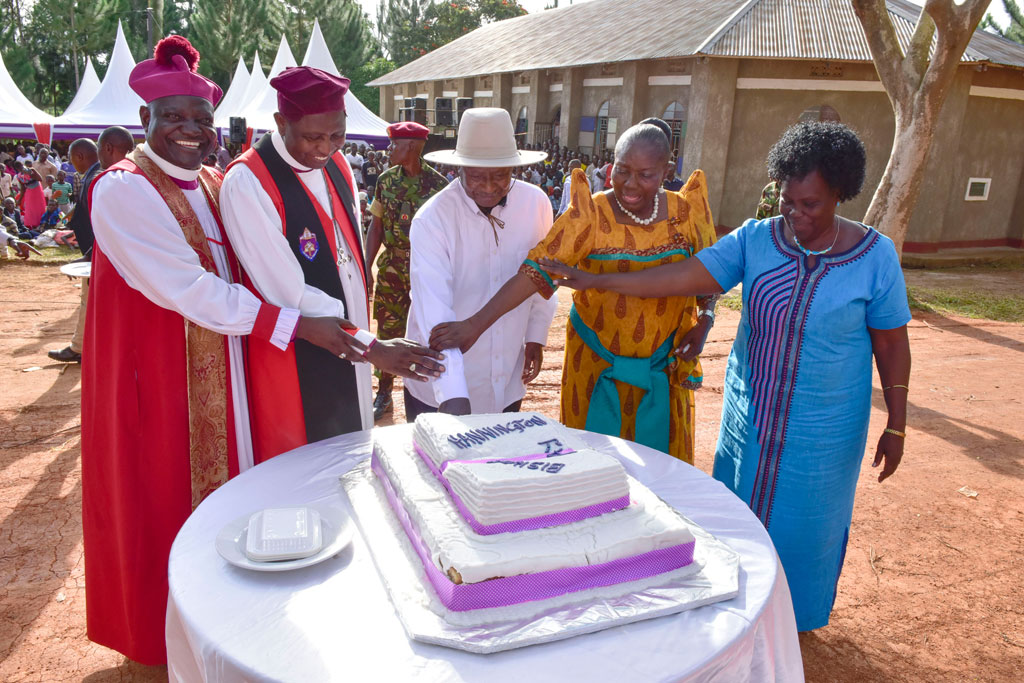Two lawyers have petitioned the High Court Civil Division to quash an agreement between the Government and Uganda Vinci Coffee Company Limited on grounds that it is illegal and irrational.
Henry Byansi and Michael Aboneka are challenging the agreement signed by Ramathan Ggoobi, the Secretary to Treasury on behalf of the government and Enrica Pinetti, an Italian investor and the Uganda Vinci Coffee Company Limited board chairperson on February 10, 2022.
The agreement grants Uganda Vinci Coffee Company Limited exclusive rights to buy Uganda’s coffee before the government can look at other players.
The Company is also exempted from paying taxes such as Import duty tax, Stamp duty, value-added tax, National Social Security Fund, and Pay as You Earn for ten years.
The company also reserves the right to determine the coffee prices in the country on top of enjoying electricity subsidies among other benefits.
In their application, the lawyers want the court to declare that the actions of the Minister of Finance and Economic Development to handpick Uganda Vinci Coffee Company Limited in disregard of able Ugandan firms to solely manage the coffee business, set coffee prices and related products, is an infringement on the right to own property and open competition as well as economic rights of coffee farmers in the country.
They also contend that the agreement is illegal, unfair and irrational on the grounds that government didn’t follow all legal and administrative processes and conduct adequate consultations with the Solicitor General, Ministry of Agriculture, Uganda Coffee Development Authority and other related agencies.
The applicants also fault the government for failure to seek requisite approval from the Uganda Revenue Authority before making several tax waivers in favour of the Company and for failure to comply with the provisions that govern procurement under the Private Procurement Act and other related laws.
The application is supported by Byansi’s affidavit, in which he states that besides being a Practicing Advocate, he owns a small scale farm in Bulongo Sub-county in Luuka District where he has been getting income through selling coffee beans for the last ten years.
Byansi notes that the coffee sector in the country has many stakeholders including farmers, exporters, associations, and unions such as Bugisu Cooperative Union and Ankole Coffee Produce Cooperative Union among others who were never consulted on the agreement in question.
“I know that the impugned Deed of Amendment and Restatement of the Project Implementation Agreement unreasonably restricts competitive and equitable trade practices in the coffee sector by purporting to give the 2nd respondent/Company the monopoly to manage the coffee business at the detriment of other able Uganda firms,” says Byansi.
The applicants also note that government doesn’t have any reasonable justification of giving Uganda Vinci Coffee Company Limited unfettered rights over others to set prices of coffee beans and related products because this would be a violation of the universal and economic principles that restrict unreasonable interference and unfair competition in the economic affairs of individuals and society.
“The respondent’s actions have the chilling effect of curtailing the constitutionally guaranteed economic rights of the applicants and those other similarly situated coffee farmers and traders guaranteed under Article 40 of the Constitution,” reads the application.
The article guarantees the right of every Ugandan to carry on any lawful occupation trade or business. Byansi and Aboneka want the High Court to quash the agreement between the government and Vinci Coffee Company Limited, saying it is illegal and of no legal consequence.
The court is yet to summon the Attorney General who is the only respondent in this suit to file his defence before the matter is allocated to a Judge for hearing.
In August 2020, the Constitutional Court nullified a similar agreement granting Great Lakes Ports Limited, which belongs to Former Foreign Affairs Minister, Sam Kutesa exclusive rights to clear goods at entry ports.
In their ruling in the matter of Spedag Interfreight Uganda and two other Companies against the Attorney General and Great Lakes Ports Limited, the court noted that the government did not have the power to enter into a contract that limited the petitioners’ fundamental rights under Article (40) (2) of the Constitution.
















